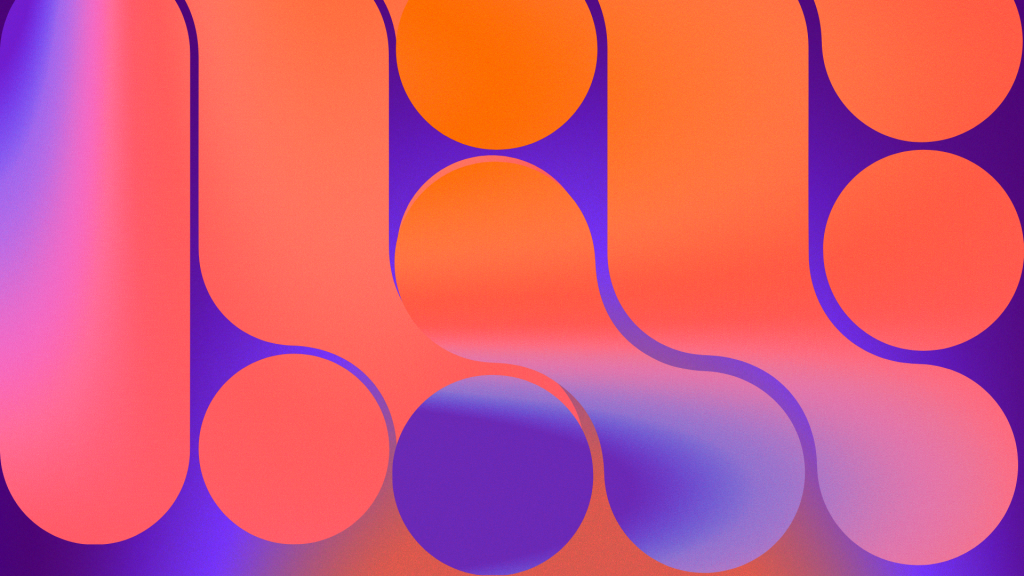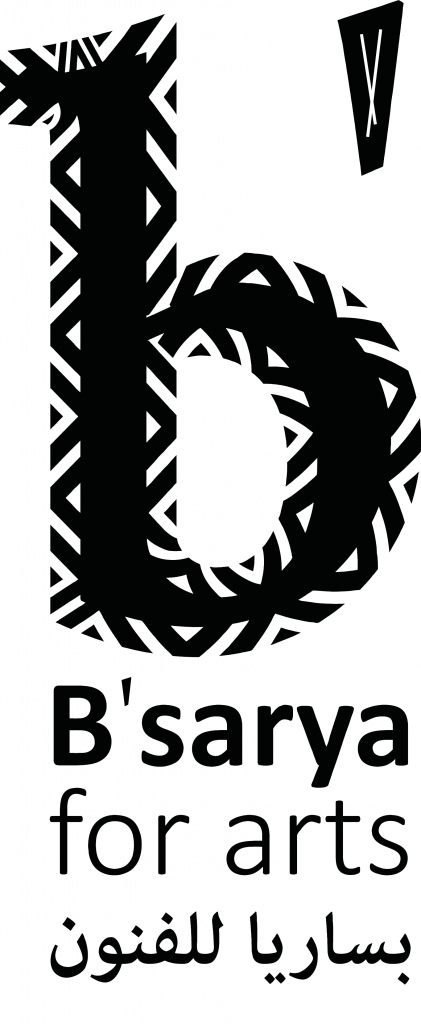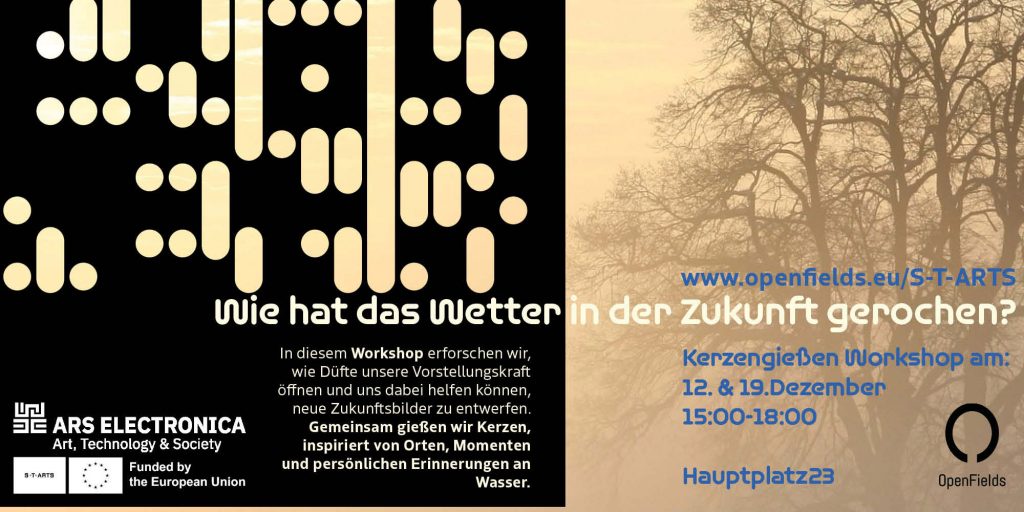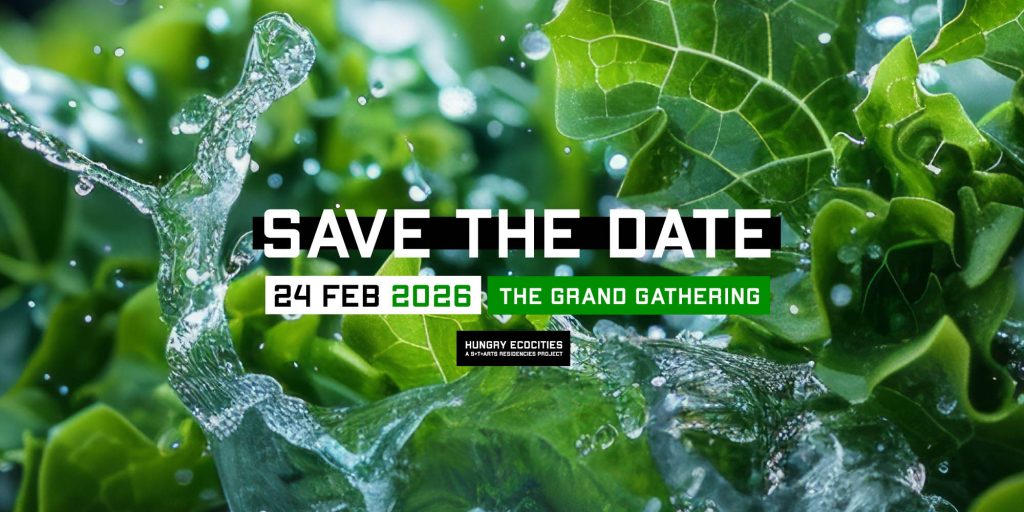S+T+ARTS Afropean Intelligence (#AI) opens a call for artists to support 10 artistic residencies in Nigeria, Egypt, Tunisia, South Africa and the Democratic Republic of Congo. The project will support 10 African* artists in their creation process, by providing digitals tools and Afro-European transversal expertise; encouraging them to reshape narratives that promote social justice, inclusivity and challenge cultural paradigms. In a context where artificial intelligence occupies an exponential place and will inevitably impact tomorrow’s societies, the project aspires to explore the uses of this technology to address topics that are at the core of Africa’s today’s concerns – either on local or more global approaches.
DEADLINE: JUNE 27, 2025 | 10:00 AM UCT
THE OPEN CALL IS NOW CLOSED
Access the record of the artists’ info sessions:
1/2: Get general info on the submission process
2/2: Learn more about each challenge
↑ All the details you need to access the open call are in this file!
↑ Dive deeper into the 10 challenges and
chose the one you will apply to!
↑ Discover more about the project context
of this open call.
10 Residencies
addressing 10 Challenges.
→
See the Challenges Booklet for all details!
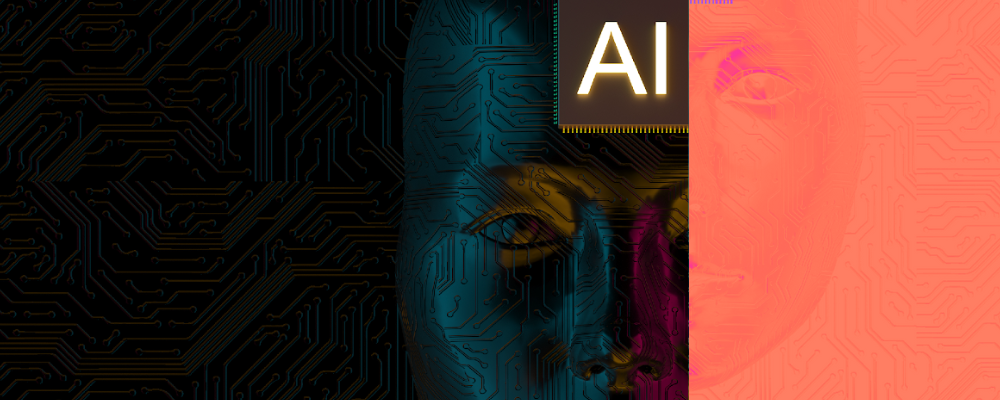
#1 – Intercultural AI:
Weaving Worlds through Art and Algorithms
𖡡 Abuja
Gallery of Code (NG) x GLUON (BE)
+
AI models and systems are trained on data heavily biased toward dominant cultures – particularly English-speaking, western worldviews while marginalizing or erasing others. Current AI systems are oblivious of the cultural nuances that exists in African language, values and aesthetics. This creates a future of AI inequalities that reinforces cultural silos, and systemic exclusions.
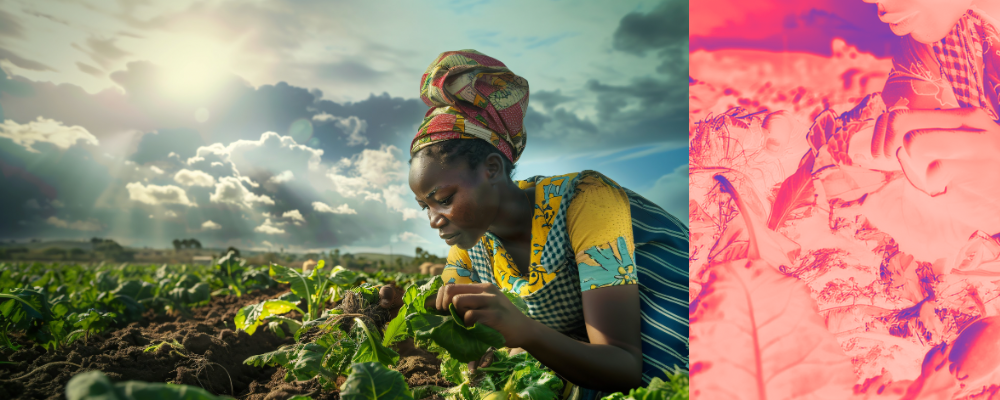
#2 – Data that Nourishes:
AI, Food & Nutrition
𖡡 Abuja
Gallery of Code (NG) x GLUON (BE)
+
Across African food systems, formal agricultural data is limited, fragmented, or nonexistent — yet rich local knowledge about land and soil thrives. Knowledge flows not through sensors or spreadsheets, but through stories, gestures, and intuition. How can artists co-create and reimagine this unseen wisdom that feeds us — to support resilient food futures?
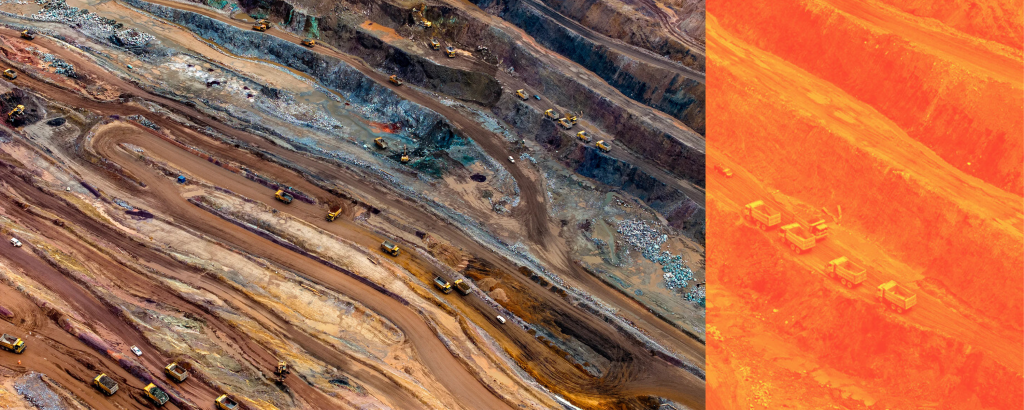
#3 – Plural Computation
𖡡 Abuja
Gallery of Code (NG) x GLUON (BE)
+
How can artistic and technological practices reimagine urban and rural territories in post-colonial Africa?
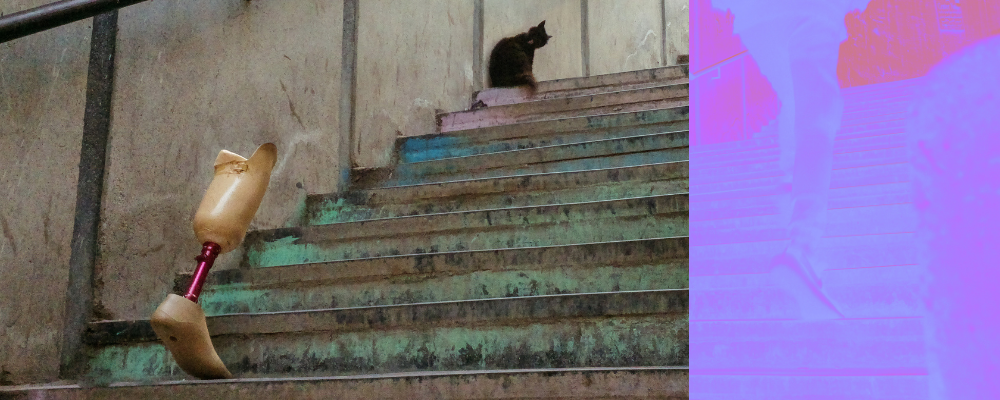
#4 – Psychogeography and the Influence of AI
𖡡 Alexandrie
B’sarya (EG) x Chroniques (FR)
+
This challenge looks at how places affect the way we feel, think, and move. Every space whether a city street, a rural road, or a hidden corner has layers of history, emotions, and power structures that shape our experience. How does AI influence our navigation, perception, and freedom in these spaces?
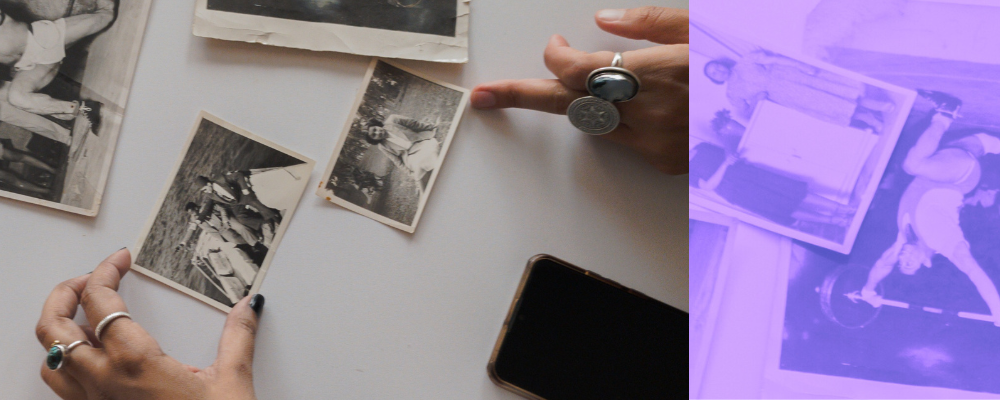
#5 – Archives & Memory
𖡡 Alexandrie
B’sarya (EG) x Chroniques (FR)
+
This challenge is about how we keep, change, and remember history. Archives whether old photos, stories, or official records shape what we know about the past. But memories aren’t always complete or neutral. What gets remembered? What gets forgotten? And who decides?
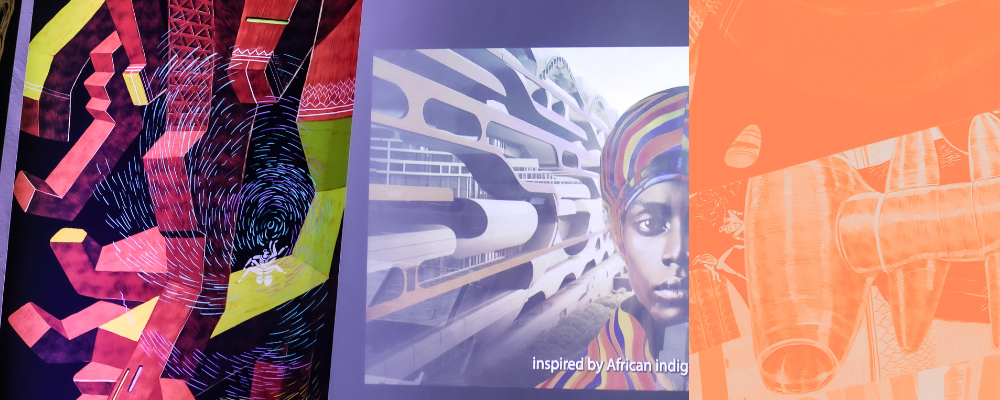
#6 – ZaZi:
An African Educational AI Model
𖡡 Johannesburg
Fak’ugesi (ZA) x Chroniques (FR)
+
How can we create a generative AI experience that demystifies how AI works, how bias occurs, and highlights its potential when built inclusively – for a diverse, multigenerational African audience?
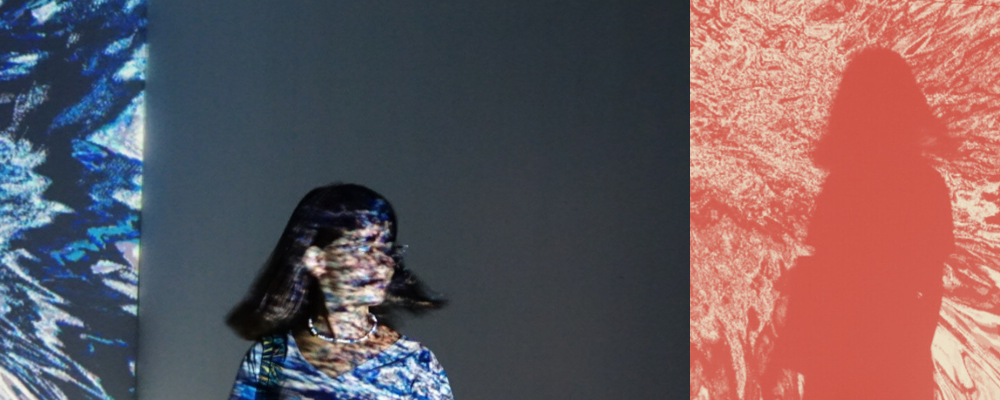
#7 – Beyond Borders:
AI, Climate, and Resource Justice in Africa
𖡡 Tunis
Interference (TN) x Chroniques (FR)
+
Water scarcity and resource depletion are urgent issues across Africa, exacerbated by climate change, unsustainable practices, and global inequalities. These crises drive displacement, reshape borders, and question land and water ownership. How can AI, ancestral knowledge, and artistic research intersect and help us rethink resource justice and sustainability in a shifting climate landscape?
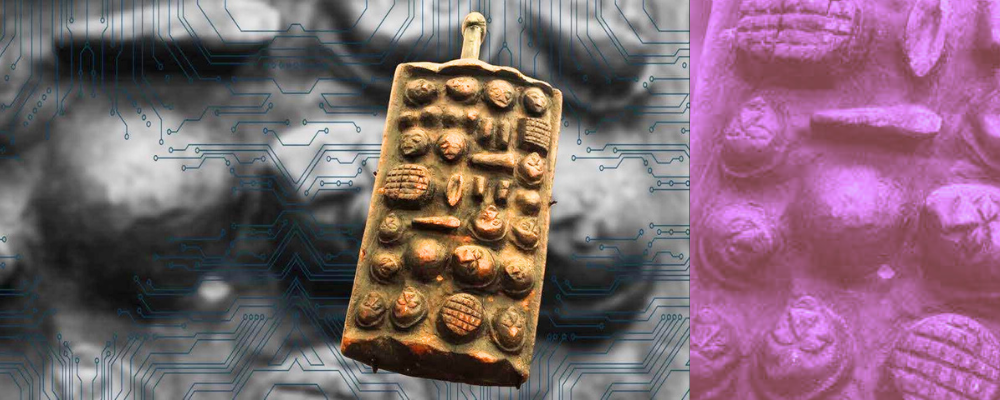
#8 – Digital Lukasa:
An Intelligent Archival Tablet
𖡡 Kinshasa + Mbuji-Mayi
Krithika Art Projects (DRC) x AfricaMuseum (BE)
+
How can we reactivate and revive the contents of the Lukasa, the memory tablet of the Luba people? Can Artificial Intelligence, in service of art, help explore and unveil the ancestral knowledge held within the Lukasa? How can we revisit and reinterpret this knowledge to make it accessible to current generations, while respecting the will of the ancestors and deities?
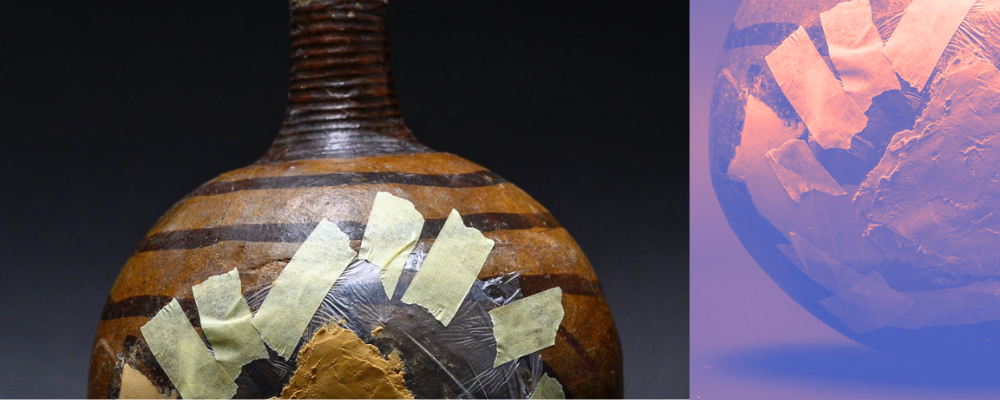
#9 – Provenance and Social Memory
𖡡 Kinshasa + Mbuji-Mayi
Academy of Fine Arts Kinshasa (DRC)
x AfricaMuseum (BE)
+
This project explores the role of AI in the preservation, restoration, and restitution of Congolese artworks, many of which have been lost or partially destroyed. It is part of ongoing debates around the provenance of cultural goods, the reconstruction of social memory, and the repair of forgotten legacies.
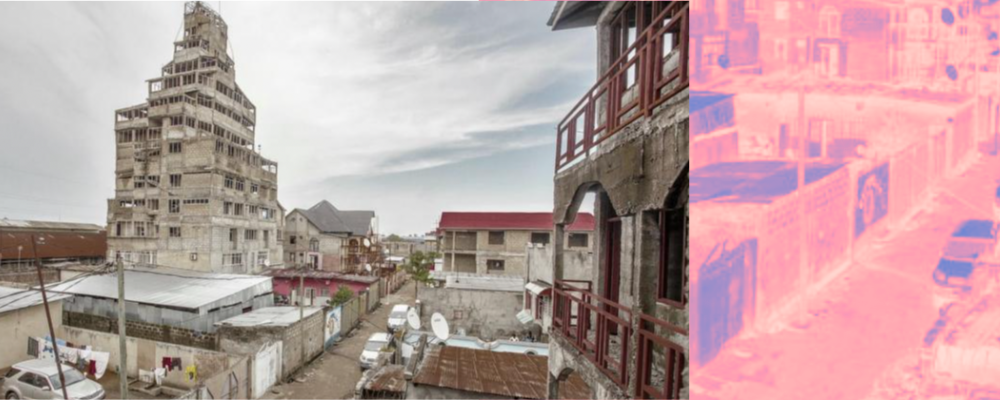
#10 – Futurism and Geolocation
𖡡 Kinshasa + Mbuji-Mayi
Academy of Fine Arts Kinshasa (DRC)
x AfricaMuseum (BE)
+
The DRC is still developing according to a model inherited from colonization, often disconnected from the daily lives of its inhabitants. In Kinshasa, population growth has made traffic increasingly chaotic, turning mobility into a daily challenge that urgently requires a solution. Artificial intelligence offers an opportunity to envision a more human-centered future by proposing tangible reinventions to improve urban mobility.
Consult the Challenges Booklet
→ here to see the requirements and specificities of each challenge.
WHAT DO WE OFFER?
+ A 8 Month-Residency Program +
+ Up to EUR 20 000 budget for artists residencies to cover the artist fee, the production costs, their travel and accommodation during their visit at the Residency Host instititution in Africa, and their travel to the AI Boot Camp in November 2025 in Johannesburg, South-Africa. +
+ Guidance and support by the Residency Host Institutions in Africa and their twin in Europe. +
+ Access to technology experts (in particular in the domain of Artificial Intelligence) provided by the Residency Host Institutions to support the development of the project. +
+ Access to the S+T+ARTS network, composed of over 10 000 members worldwide. +
RESIDENCY TIMELINE
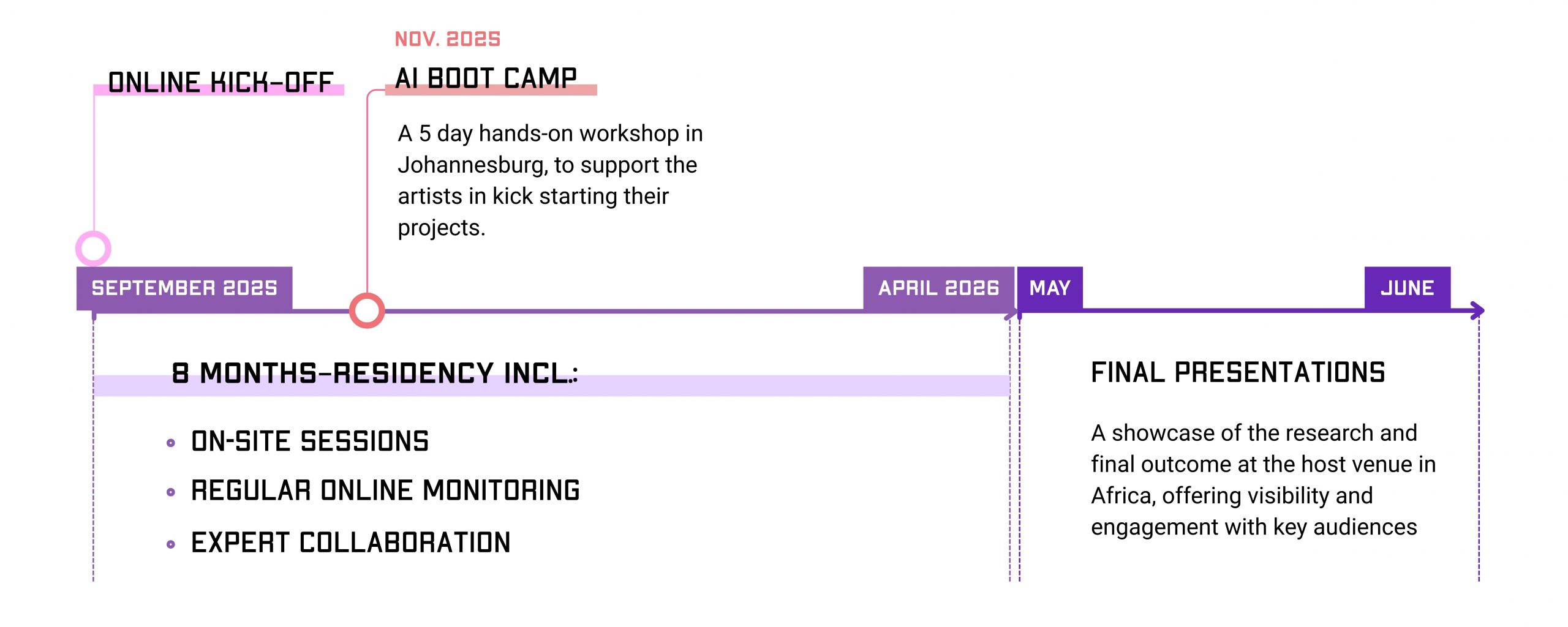
WHO CAN APPLY?
To be an eligible applicant, proposals must be submitted by an individual artist or an artist collective who’s a permanent resident or a national of any African country. If applying as a collective, members who are not African residents or nationals can take part as long as at least one member who is a resident or a citizen of an African country is actively involved in the residency.
Need more details?
Have you read the Guide for Applicants? If you did and still have some questions: visit the FAQ!
& if the answer to your questions is not there, feel free to contact us.
You are now ready to submit your proposal?
FYI, you can actually start your application and save it for later!
↓
PROCESS OF SELECTION
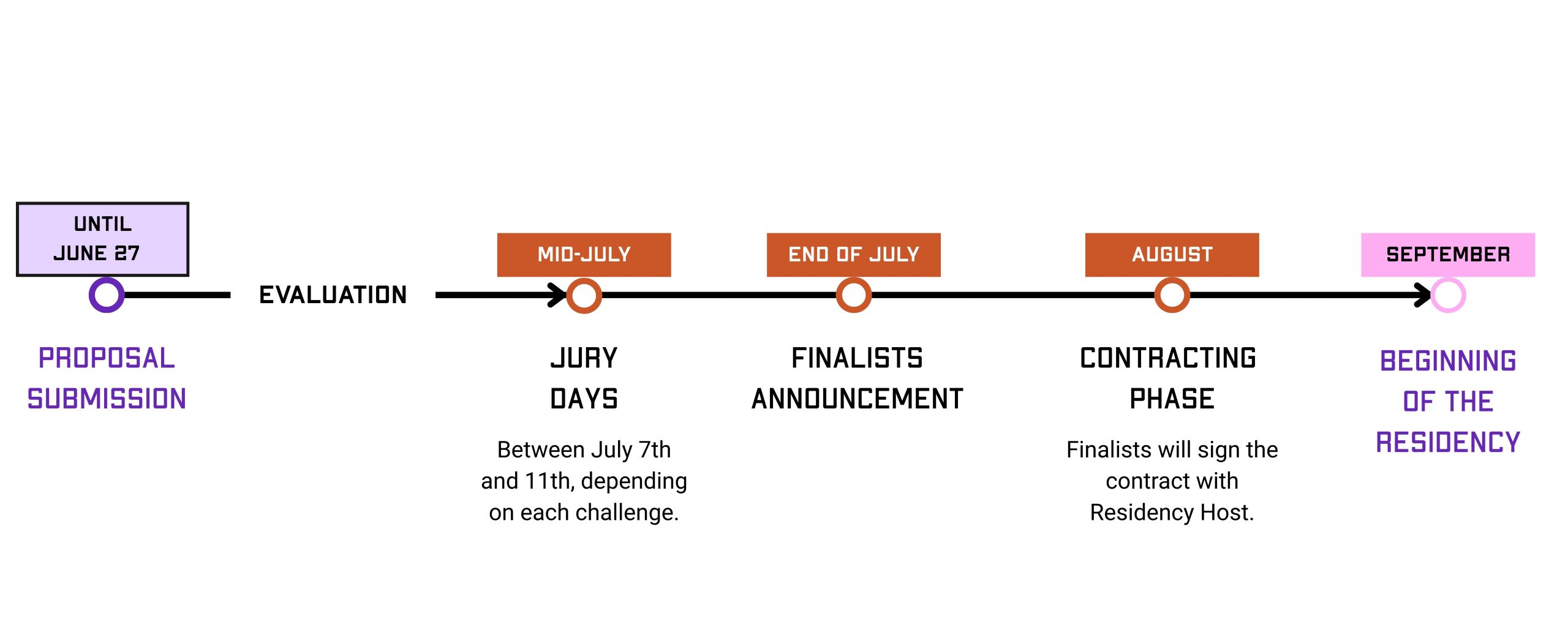
PARTNERS
CONTACT
AFROPEAN INTELLIGENCE RESIDENCIES
Ramona Van Gansbeke | ramona@gluon.be
